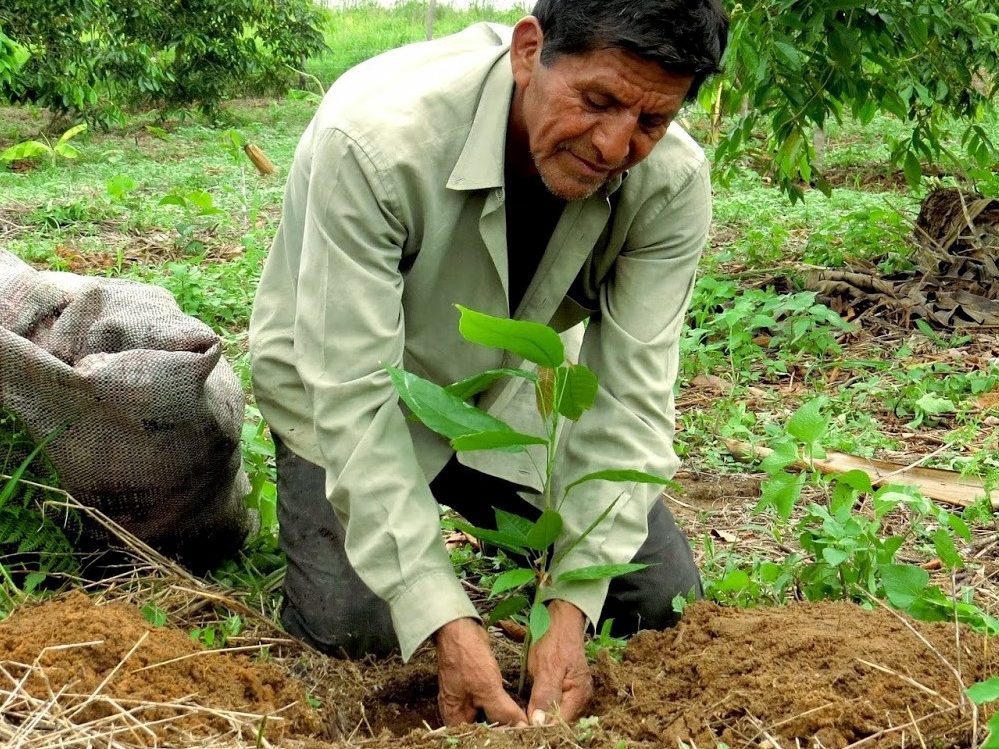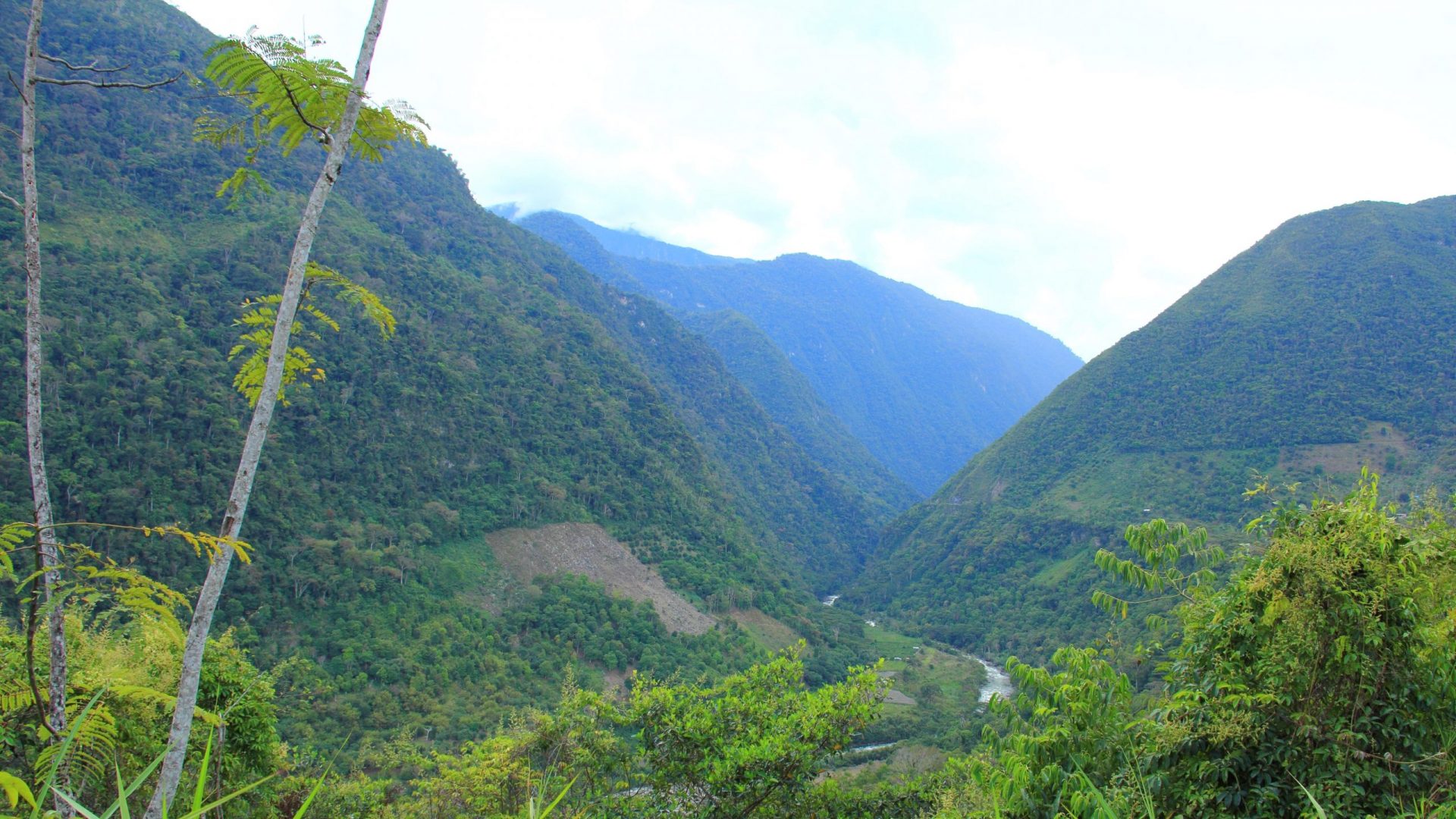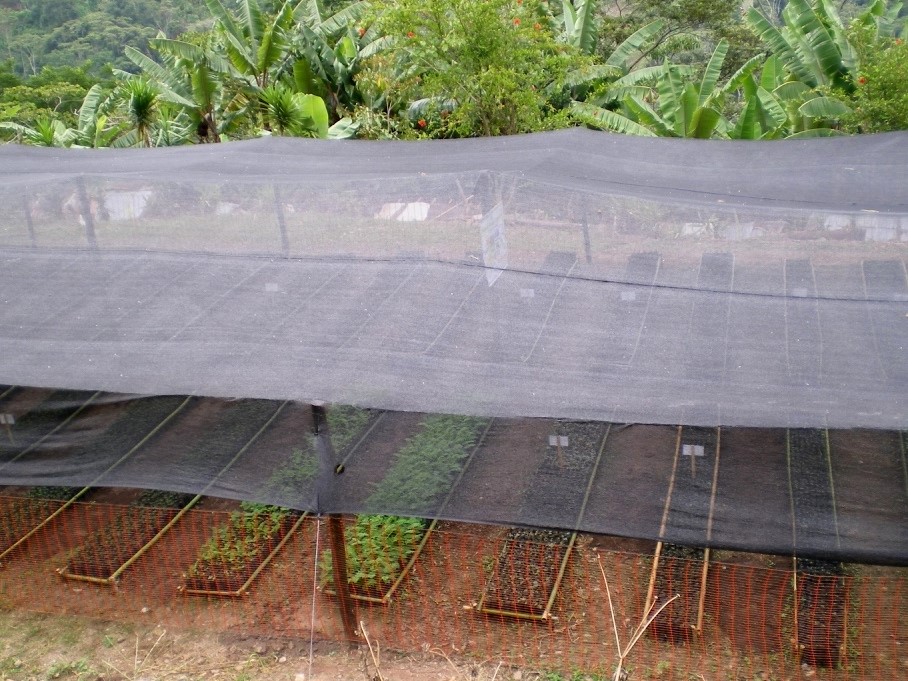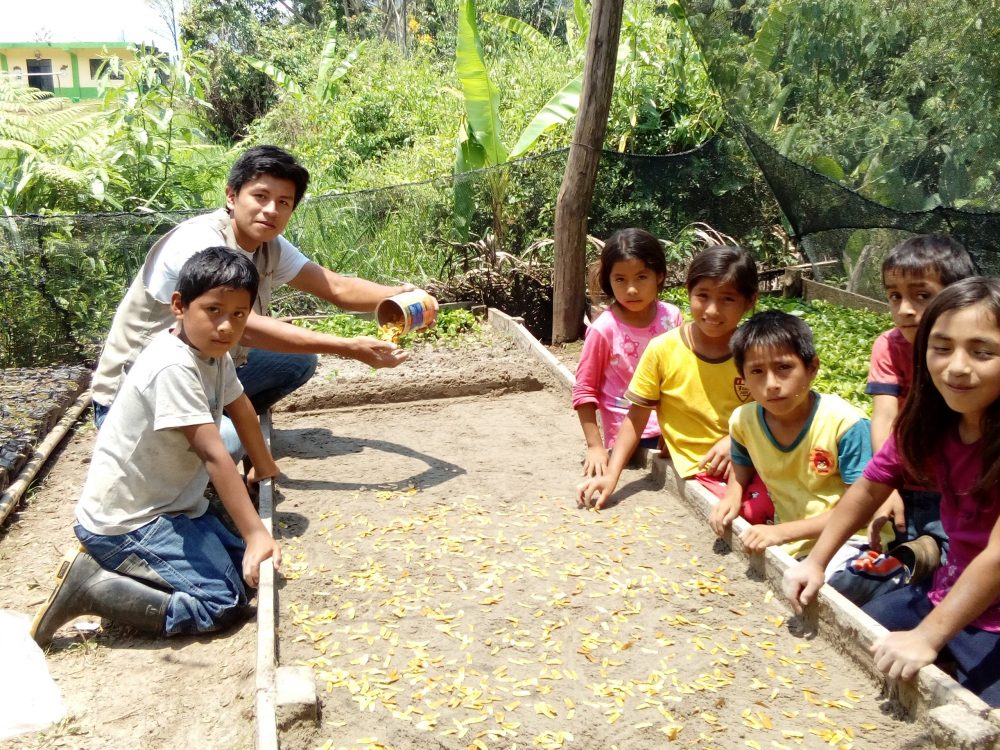



Within the framework of training courses, 300 smallholder families are to be sensitised with regard to environment and sustainable agriculture. Through the sensitisation measures in the form of practice-oriented workshops, water resources and biodiversity are protected. In addition, newly acquired knowledge will make agricultural production more profitable in the long term.
Awareness-raising courses on water and forest conservation are being conducted in six village communities. In addition, local authorities are also being trained on environmental protection and water resource issues. The training courses and workshops aim to raise awareness on environmental and water resource protection.
Environmentally friendly agriculture in the form of adapting production to climatic changes is to be taught in practice through established demonstration plots. The project will also reforest a total of 450 ha of forest in the form of six community tree nurseries.
The focus of Aprodes’ work is the promotion of sustainable, economic and social development of disadvantaged population groups while preserving natural resources and the environment. Active since 1996, Aprodes now works in 4 regions of Peru: Lima, Junín, Cuzco and Piura.






Designed by: Calmo Agency
| Cookie | Duration | Description |
|---|---|---|
| cookielawinfo-checkbox-analyse | Dieses Cookie wird vom GDPR Cookie Consent Plugin gesetzt. Die Cookies werden verwendet, um die Einwilligung des Benutzers für die Cookies in der Kategorie "Analyse" zu speichern | |
| cookielawinfo-checkbox-analytics | 11 months | This cookie is set by GDPR Cookie Consent plugin. The cookie is used to store the user consent for the cookies in the category "Analytics". |
| cookielawinfo-checkbox-necessary | 11 months | This cookie is set by GDPR Cookie Consent plugin. The cookies is used to store the user consent for the cookies in the category "Necessary". |
| cookielawinfo-checkbox-notwendig | Dieses Cookie wird vom GDPR Cookie Consent Plugin gesetzt. Die Cookies werden verwendet, um die Einwilligung des Benutzers für die Cookies in der Kategorie "Notwendig" zu speichern. | |
| CookieLawInfoConsent | Dieses Cookie wird vom GDPR Cookie Consent Plugin gesetzt. Die Cookies werden verwendet, um die Cookie-Informationen anzuzeigen und die Einstellungen des Nutzers zu speichern. | |
| viewed_cookie_policy | 11 months | The cookie is set by the GDPR Cookie Consent plugin and is used to store whether or not user has consented to the use of cookies. It does not store any personal data. |
| Cookie | Duration | Description |
|---|---|---|
| _ga, _gid, _git | 12 months | Google Analytics |
| _gat_gtag_UA_203688925_1 | 1 minute | Set by Google to distinguish users. |
| _gcl_au | 3 months | Provided by Google Tag Manager to experiment advertisement efficiency of websites using their services. |
| Cookie | Duration | Description |
|---|---|---|
| AWSALB | Cookie von Amazon Web Services, der den User bei jeder weiteren Anfrage auf dem gleichen Server hält, auf welchem er mit seiner ersten Anfrage gelandet ist. | |
| AWSALBCORS | Cookie von Amazon Web Services, der den User bei jeder weiteren Anfrage auf dem gleichen Server hält, auf welchem er mit seiner ersten Anfrage gelandet ist. | |
| elementor | 1 day | This cookie is used by the website's WordPress theme. It allows the website owner to implement or change the website's content in real-time. |

